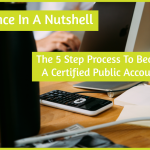
Simple & Non-Sleazy Marketing Strategies For Your Online Business
When it comes to running a business successfully, you know that marketing lies at the heart of everything you do. Whether you’re completely self-taught or you’ve learned everything you know about business and marketing from something like an online MBA course or from working at a digital marketing agency there’s one common thing that pretty much any good marketer will agree on, and that’s that marketing can either make or break your business depending on how you put it across and what strategies you adopt.
In this post, we’re going to share with you some of our favorite marketing strategies that are very simple, and they’re entirely non-sleazy, which is important if you want to market your business for success.
Facebook Groups:
You probably already know that Facebook groups are an amazing platform for connecting with for building a true and loyal fan base of people who want to work with you, and whilst you may be using Facebook groups for your business, do you have a strategy for them?
Many people started out just winging it on Facebook, too. But it gets old quick, and now they’re becoming so busy and popular that you may even wonder if there’s any room for you.
The good news is, yes there is. The bad news is, you really do need a strategy in order to get noticed.
One thing we’ve found to work very well is starting your own Facebook group.
Now, let us just say this: starting a group is not a magic solution to bring you tons of your ideal clients. It’s really hard work, and sometimes it feels like you’re talking to an empty room.
Especially in the beginning when you’re trying to get people into the group.
Don’t give up, though. Having a group of your own, when done right, is well worth it.
Why this strategy works:
You’re the authority in the group, so people are there to learn from you. You have a platform to display your expertise, build trust, and build better connections with your ideal clients.
It also gives them the chance to see what it might be like to work with you on a deeper level, and you can gradually introduce them to some of your introductory offers.
It’s also a great way to build your email list.
Host Free Workshops:
You may look around online and see another person promoting another webinar, and think to yourself “oh, great – another pitchfest for 60 minutes.”
Webinars and online workshops have become very popular in the past few years, and with that, have understandably received a bit of a bad rap because a lot of people choose to make them all about selling.
So, while it may not be as easy to get people signing up as it once was – webinars and online workshops do still work very well, and when done right, can have massive positive results for your business.
The trick is making sure you stand out, and do things differently.
Don’t make it all about selling. Deliver great value before asking for anything in return. In fact, you don’t even need to sell anything – you can simply use them as a way to build your email list or the Facebook group you may have started based on the first strategy in this post.
Why this strategy works:
Again, you’re positioning yourself as the expert. People are coming to listen or watch you because you have something they want to learn.
When you show people that you know what you’re talking about, and can leave them feeling like the time they spent listening to you was worthwhile, they will want to know more about you, and when it comes time to hire someone to help them in this area, you will very likely be the person they think of.
If you want to make sales directly off the back of your webinar or workshop, that’s totally fine. Just make sure you’re giving a lot of value first so that the next logical step is to take you up on your offer.
Make the transition an easy one, and don’t bombard people with a 45-minute pitch about how wonderful your offer is.
Share Your Story:
Humans are naturally wired to love stories. They allow us to use our imagination, and to feel like we’re being invited to be part of something.
Now, when we’re talking about your story, we’re not talking the typical rags to riches stuff we’re seeing more and more of. Y’know, things like “just a year ago I was living in my car and now I’m making $30K a month.”
Why this strategy works:
That’s not the kind of stuff people need to hear.
Your story is part of who you are. It’s part of what brought you to where you are, and to teach the things you’re teaching today.
It helps your clients and potential clients identify and relate to you, because they can see that you’re human – just like them.
They will feel more connected to you, and this is what true relationships are built on.
Be Helpful:
Just before we go into this one, we want to make something clear: being helpful in itself shouldn’t be looked at from a strategic point of view.
You should be helpful just because you want to be, and you’re a genuinely helpful person.
When you’re being helpful in the hope that you’ll get something out of it, then that’s not really being helpful – that’s just using and manipulating people, and you will get found out doing this because it’s fake and it’s not something that can be hidden forever.
But, with that being said: you can still use your helpful nature to your advantage when it comes to growing your business.
So, technically it’s a strategy, and because this post is focused on non-sleazy strategies, then we’ve added it in.
Why this strategy works:
Because, quite simply: being helpful is good, and people will notice you. Whenever you’re in a Facebook group or any other place you hang out online and you see someone struggling with something that you know, don’t go in and start pitching your services like so many others do.
Trust me, this is a huge turn off and makes you look desperate. Also people don’t like being sold to like that. They like to know that they made the decision to work with you when it felt right for them.
So, just offer them some tips, or even show them how to do something. Jump on Skype with them, or send them a free resource you have. It might take you 15 minutes to help them out, but they will appreciate it, and they will likely start checking out your business page, your website, and work.
They may not become a client right now – they may not ever become a client.
But who do you think they’ll think of when they need someone with your skill set either for themselves or to refer someone to?
Will it be the person who tried to pitch them something when all they had was a simple question, or will it be the person who took the time to help them out without expecting anything in return?
© New To HR


